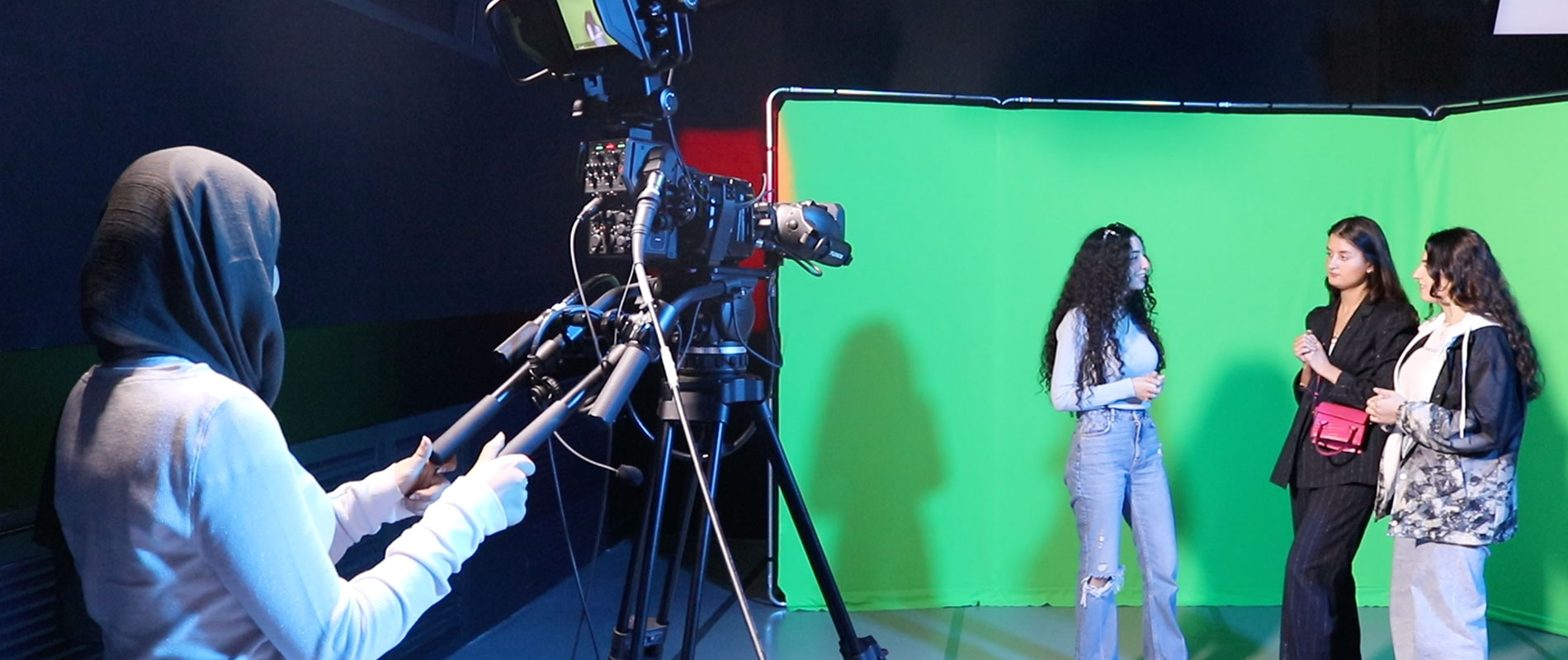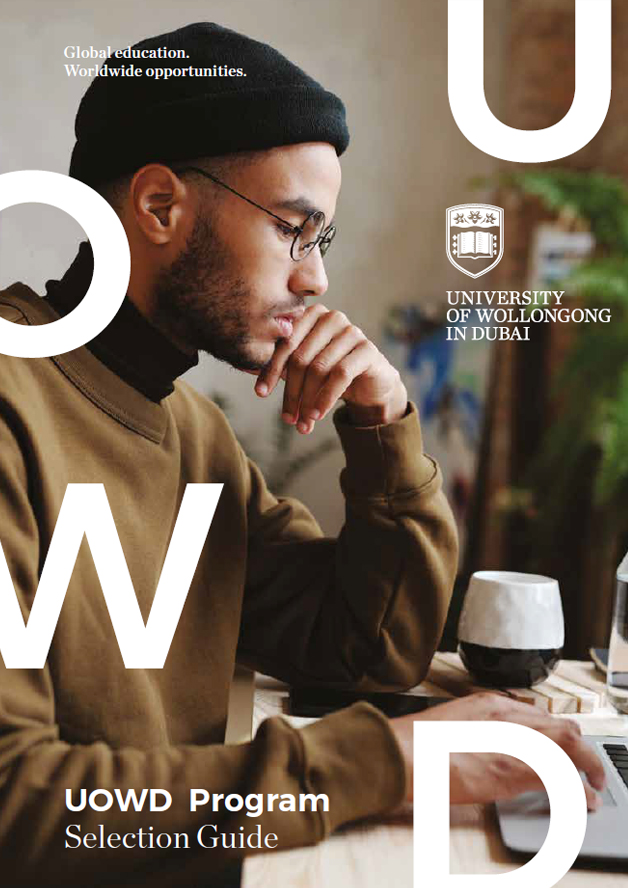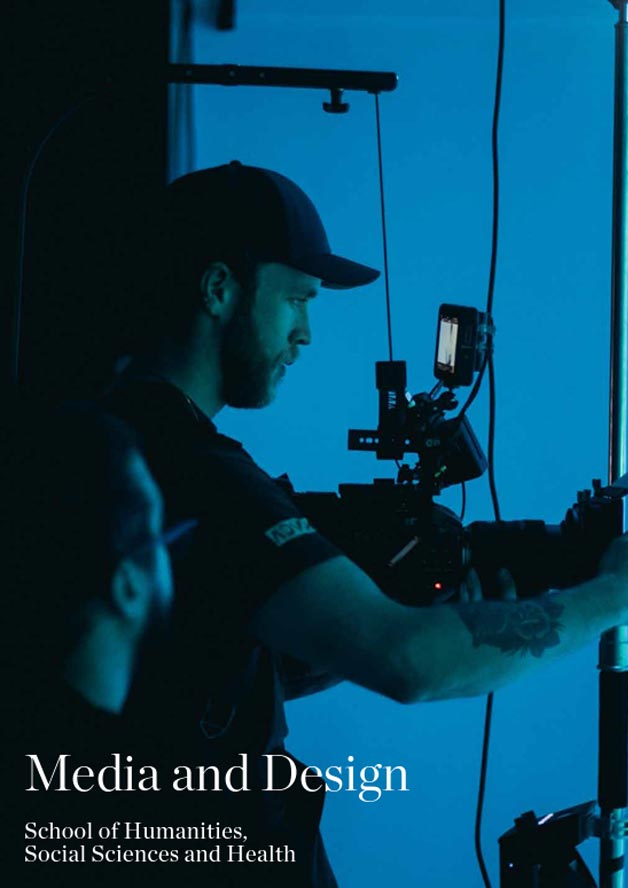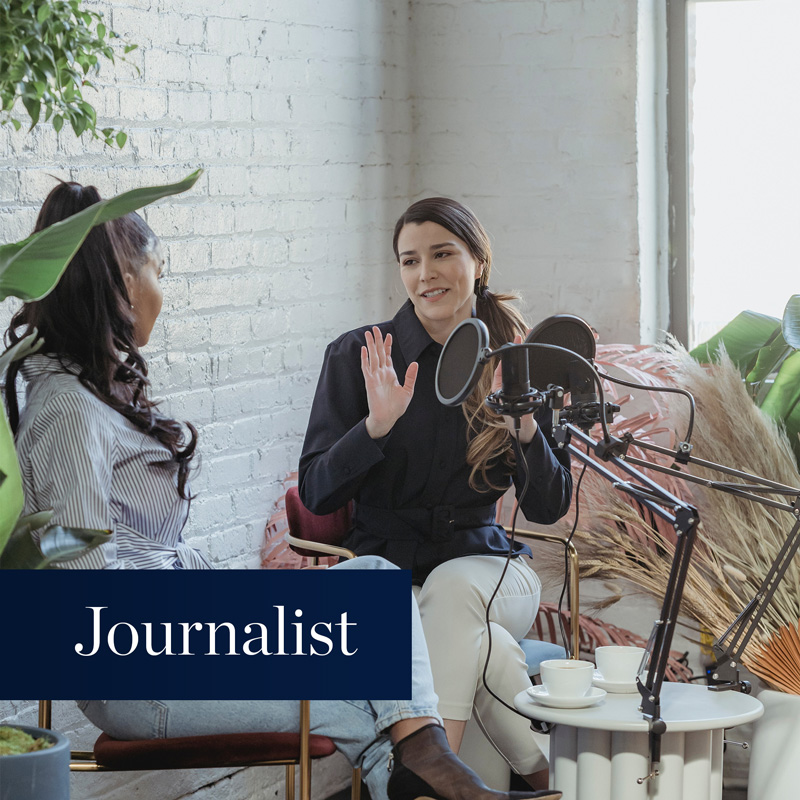- Home
- Degrees
- Undergraduate
- Media & Design
- Bachelor of Communication and Media (Screen Media Production)
Bachelor of Communication and Media (Screen Media Production)
Duration
3 Years Bachelor Degree
(24 subjects)
4 Years Bachelor Degree
with Integrated Freshman Year (32 subjects)
Classes commence
| September (Autumn) |
| January (Winter) |
| April (Spring) |
Yearly Fees*
AED 60,429 / USD 16,466
*VAT 5% inclusive
Note: Yearly fees will vary depending
on number of subjects enrolled in
Video production, film production, and in general, the screen media industry was once characterized by very, very high barriers to entry. Only those with very specialized equipment, connections to Hollywood, or connections to elite film schools were deemed to be ‘qualified’ to make films. The internet, technology, and a general change in the way we think about film has completely changed this once exclusive industry. In today’s media world, each of us can create and share video and film projects, without prerequisites, requirements, or those barriers to entry. This has given way to the growth of everyday video streaming platforms like YouTube, and social media-based video platforms like Tik Tok, where anyone can hone their craft of video/film making and production.
Does this mean everyone can go to Hollywood and become the next Scorsese, or Spielberg? No, of course not. These are generational talents, ones that we can learn from and strive to emulate. But does this mean we all have more opportunities to make a film that ends on being seen globally? Absolutely.
The Global Screen Media Specialization offers students an in-depth look into the world of film, screen media, visual narrative construction and screen based storytelling. Students are introduced to all aspects of screen media production, from story/narrative creation, pre-production, to mise-en-scène, staging, lighting, sound, camera set-up, to directing – and into the post-production process of creating a final screen media artefact. Course work in this specialization is project based and process based, and students will put their skills, creativity and media making into practice from their first trimester. You’ll have the opportunity to work as a writer, director, camera person, set director, and editor, all of which will prepare you for work in the field of screen media and video/film production.
Students who have excelled academically at school and meet our advance entry requirements can finish their bachelor's degree in three years, instead of the existing four-year programs. Any prospective student that does not directly qualify for an advance entry three-year program, is still able to enrol in any of our bachelor’s degree, through a one-year Freshman Year.
Admission requirements for UOWD depends on the type of high school curriculum you have followed. The requirements based on the most common high school curricula are listed below:
| School System | Bachelor Degree Advanced Entry (3 Years) |
Bachelor Degree Direct Entry (4 Years) |
|---|---|---|
| UAE Al-Thanawiyya Al-Aama |
N/A | Elite or Advanced Track 70%, General Track 75% |
| Arab Countries Al-Thanawiyyah Al-Aama |
N/A | 70% |
| American High School Diploma | Overall average grade of C (70% or 2.5/4.0) + SAT 1100 |
Overall average grade of C (70% or 2.5/4.0) |
| Bangladesh HSC |
GPA of 4.0 / 5.0 | GPA of 3.0 / 5.0 |
| Brazil Brazil Higher Secondary Certificate |
N/A | 60% |
| British GCE Curriculum | Minimum 5 IGCSE/GCSE subjects and Minimum of “CCD” in A levels |
Minimum 5 IGCSE/GCSE subjects and 2AS/ 1A level subject(s) |
| Chinese Senior High School | 80% | 60% |
| Colombia Título de Bachiller Académico |
N/A | 3 out of 5 or 6 out of 10 |
| International Baccalaureate Diploma | 25 Points | 21 Points |
| India CBSE & ICSE, Grade 12 |
65% | 50% |
| Iran Pre-University Certificate |
14 | 11 |
| Japan Upper Secondary School Diploma |
3.8 out of 5 | 2.5 out of 5 |
| Kenya | 60 | 31 |
| Mexico | N/A | 6 out of 10 |
| Nepal School Leaving Certificate Examination |
3 out of 4 | 2.3 out of 4 |
| Nigeria WAEC & NECO |
N/A | Minimum of 7 subjects with no more than 1 “Pass” |
| CIS Countries Attestat |
N/A | Average 3/5 |
| South Korea CSAT |
77.5% | 70% |
Notes:
- All students applying for these programs are required to have an EmSAT in Mathematics with a score of 600 or equivalent.
- Students with qualifications from other curriculum should contact the Student Recruitment and Admissions department at UOWD to determine their eligibility.
- All students applying from non UAE MoE curriculum must provide an equivalency of their Secondary School Certificate from the Ministry of Education, UAE; stating the completion of Grade 12.
- A student who does not satisfy the criteria for Equivalency of Secondary School Certificate, may be subject to conditional admission, based on receiving a Letter of No Objection to Conditional Admission issued by the Ministry.
At UOWD, all classes are taught in English and in order to enrol in a bachelor’s degree you will need to submit one of the following certificate of English language proficiency:
| English Language Testing | Bachelor Degree Advance Entry (3 Years)* |
Bachelor Degree Direct Entry (4 Years)** |
|---|---|---|
| IELTS Academic |
Overall IELTS (Academic) score of 6.0 & Minimum score of 6.0 in Reading & Writing Minimum score of 5.0 inListening & Speaking |
Overall IELTS (Academic) score of 5.0 & Minimum score of 5.0 in Reading & Writing |
| TOEFL Internet-based |
79 with not less than 20 in Writing, 18 in Reading, 17 in Listening, 16 in Speaking |
61 |
| TOEFL Computer based |
213 with a 4.0 TWE/Essay Writing |
173 |
| TOEFL*** International paper based |
550 with a 4.0 TWE/Essay Writing |
500 |
| EmSAT Achieve – English |
1400 | 1100 |
Notes:
* Students with a minimum overall score of 6.0 in academic IELTS and no more than one score (either in reading or writing) between 5.0 and 6.0 will be given the opportunity to complete a remedial subject in the first semester as a condition for progression.
** Students with a minimum overall score of 6.0 in academic IELTS (or equivalent) and a minimum score of 6.0 in reading and writing(or equivalent) are eligible for advanced standing for English Language subjects.
*** Students admitted under this criterion must complete the test at AMIDEAST.
If you are seeking advanced standing status, please submit an official academic transcript showing all courses studied and the grades achieved, syllabus details (including information on course content) for the courses you have completed and an explanation of the grading system.
To make an application for your chosen program, complete the online application form and submit it along with all your supporting documentation (see below) prior to the application deadline.
Late applications may be accepted subject to the availability of places but applicants are encouraged to apply as early as possible.
Please ensure that all these documents accompany your application for admission form submittal:
- An original or certified copy of your secondary school records
- A Statement or Certificate of Completion of secondary school
- Proof of your English language proficiency
(Note: Results from IELTS & TOEFL tests may be sent to the University directly from the IELTS or TOEFL testing centres quoting the UOWD institution code IELTS: AE109 / TOEFL: 7907)
- UAE ID (if applying from within the UAE)
- A copy of your passport (and Residence Visa, if resident in the UAE).
Additionally, if you are seeking advance standing in your chosen program:
- Certified copies of official academic transcripts showing all courses studied and grades obtained, syllabus details (including information on course content) of the courses you successfully completed and an explanation of the grading system.
All applicants for admission who have completed the Thanaweya Al-Amma must get their certificates attested by the UAE Ministry of Education.
Applicants from all other curriculum, who have completed their high school from UAE, are required to obtain equivalency of their high school qualifications from the UAE Ministry of Education.
In these circumstances, you will be provisionally admitted to the University and permitted to commence the first semester of study, subject to you obtaining the required attestation/equivalency.
You must have your secondary school records and Certificates of Completion certified by:
- The issuing Board of Secondary Education OR a recognised authority for secondary education
- The Ministry of Foreign Affairs in the host country
- The UAE Embassy in that host country OR the Embassy of the host country in UAE must attest the authenticity of the documents and attestations and the UAE ministry of Foreign Affairs.
In special cases where complying with conditions (2) and (3) are not feasible, the certificates may be verified against originals by Embassies in the UAE and the UAE Ministry of Foreign Affairs.
In these circumstances, you will be provisionally admitted to the University and permitted to commence the first semester of study.
If you are unable to secure the attestations as outlined above you will be asked to sign a “Consent to Provide Documents” form agreeing to secure the equivalency. You will be permitted to commence your studies at UOWD, but will be given a maximum of one semester to obtain the attested certificate(s). UOWD reserves the right to take appropriate action against any applicant who cannot secure the appropriate documentation in this time, which may result in the termination of the student’s enrolment at UOWD.
For more information or assistance on attesting documents from outside UAE, click here.
Program Structure
To qualify for the Bachelor of Communication and Media (BCM), a candidate shall accrue an aggregate of at least 144 credit points comprising of core subjects, major subjects, electives and final year project.
Choose 2 Electives from the following options
Choose 1 UAE Studies Subject
Choose 2 Elective from the following options
Take 1 Arabic Language Subject or Challenge Test
Choose 1 Elective from the following options
Final General Elective Requirement
Program Outcomes
Students graduating with a Screen Media Production degree will be ready to work in any job related to video and film making. Students will have extensive understanding of the end-to-end process that goes into film making, and will be able to make an immediate impact in the industry. You might work for an advertising agency as a video producer, a film production company as a video editor, or a news agency as a content production specialist. The possibilities are endless, and the demand for people with skills in video production will only continue to grow. You’ll also graduate with an extensive, professional portfolio of your work, making you an extremely employable candidate for any screen media related job.
For more on why this major is a good choice, and what skills you can expect to learn and develop in the program, see what some of our Screen Media Production students have to say.
Testimonial

Hanaa Alamir Ali
The best thing about my Screen media production major is the hands-on projects. I have planned and filmed trailers, documentaries, as well as short films. Since the Media industry is very competitive, the Media program at UOWD has helped us unleash our creativity to create different and unique projects to attract the audiences, all while building our portfolios.
Additionally, our state of the art media studio is equipped with all the latest film production equipment, including Black Magic Cameras, sound, light and audio systems. So not only are we able to learn about the industry but also the technical elements that go into making the media we see around us every day
Accreditation and Recognition
All degrees at the University of Wollongong in Dubai are accredited by the Commission for Academic Accreditation (CAA) of the UAE Ministry of Education and are licensed by the Knowledge and Human Development Authority (KHDA). In addition, the degree is quality assured by UOW, which is registered with the Tertiary Education Quality and Standards Agency (TEQSA), the national regulator of the higher education sector in Australia.
Students will be issued a UOW Australia degree upon graduation.
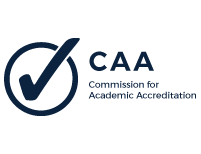
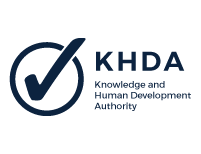

Dr Michael L Mallory
Assistant Professor
(Director Media)
Dr Michael L. Mallory is the Program Director for Media & Communication at the University of Wollongong in Dubai (UOWD). He teaches a wide range of courses in the Bachelor of Communication and Media (BCM) and Master of Media and Communication (MMC) degrees
Read MoreFaculty
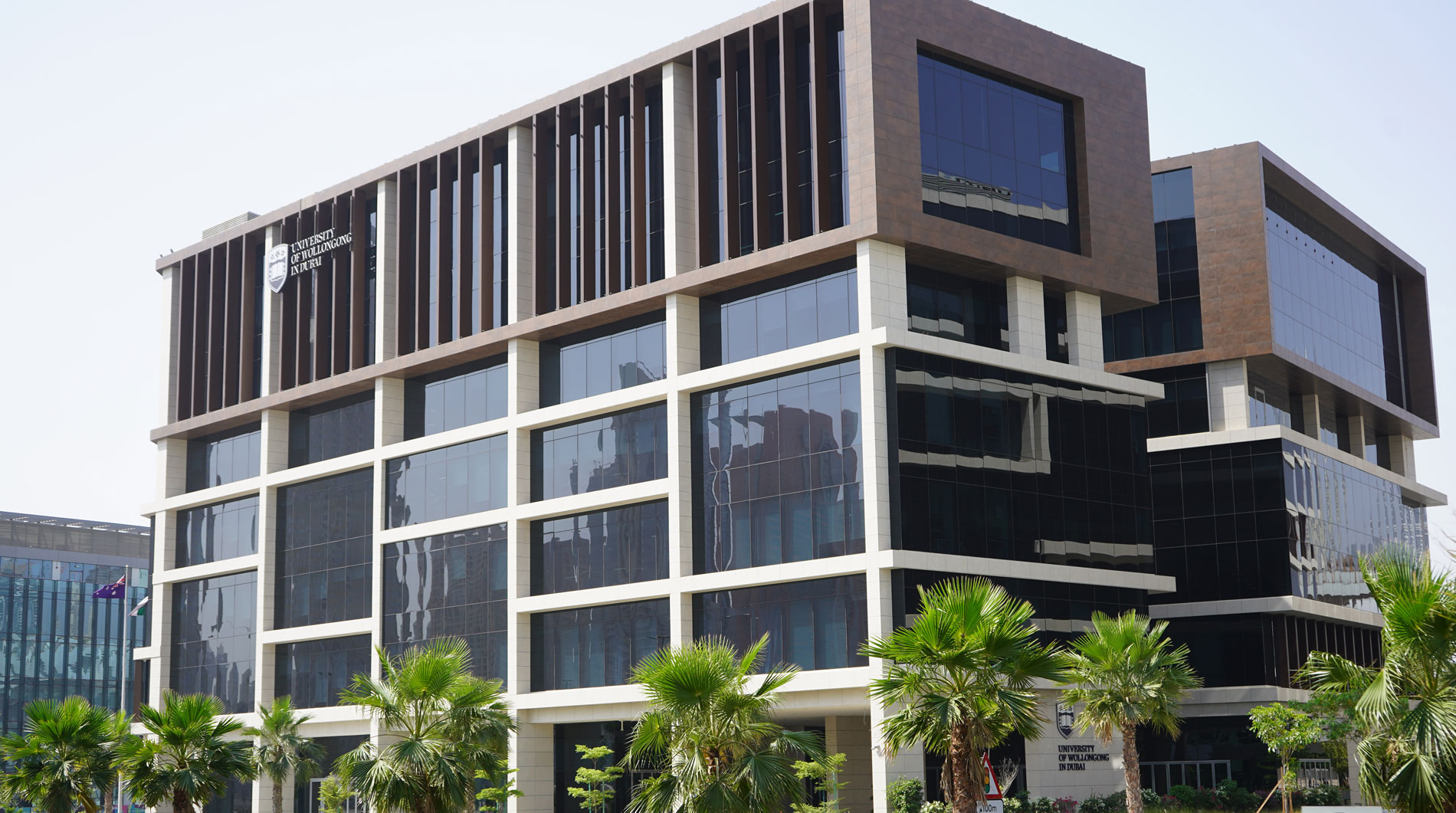
Open Day
Attend our next Open Day on Saturday, 27 April 2024.
Join our experts to learn more about our degrees and how you can enrol at UOWD.
